SUMMARY
This is AI generated summarization, which may have errors. For context, always refer to the full article.
International Criminal Court (ICC) chief prosecutor Karim Khan has paused an investigation into the bloody drug war and killings in Davao City.
Based on documents released on Friday November 19, Khan on Thursday, November 18, notified that they will “temporarily suspend” the investigation to assess the Philippines’ request to defer to the Philippine government in conducting the probe.
“The Prosecution will, however, continue its analysis of information already in its possession as well as of any new information it may receive from third parties, and actively assess the need for applications to the pre-trial chamber for authority to conduct necessary investigative steps for the preservation of evidence under Article 18(6) of the Statute,” said Khan.
The Philippine government, through Ambassador to the Netherlands J. Eduardo Malaya, filed a deferral request on November 10, saying, “The Philippine government hereby requests that the Prosecutor defer to the Philippine government’s investigations and proceedings.”
Governments can ask the ICC to defer a case if they are implementing their own investigations and prosecutions for the same acts.
What does this mean?
The move to pause or temporarily suspend the “investigative activities” is a procedural move to assess a formal request by the state, even though Philippines has already withdrawn from the ICC.
When before, the Philippines just issues statements or overtures to assert that it is doing its part in solving the human rights problem, this is the first active and formal move of the government to engage the ICC, which some may see as cooperation despite statements by Malacañang that it would never cooperate with the body.
What this does is shift the burden to Khan to prove if the domestic investigations are genuine, according to Otto Triffterer and Kai Ambos in their book. The Rome Statute of the International Criminal Court: A Commentary.
Triffterer and Ambos wrote that even though deferral requests are actually a form of demand, in the end, it will still be the decision of the pre-trial chamber or PTC. The PTC is what authorized the investigation in the first place.
“Notwithstanding a State’s assertion of is right to primacy, the Chamber may, in the interests of international justice and on an application by the Prosecutor, override that right and authorize the Prosecutor to carry on with the investigations,” said Triffterer and Ambo in their book.
Essentially, it triggered a new round of determining admissibility of the alleged crimes against humanity anchored on new evidence by the Duterte government, mainly the recent efforts by the Department of Justice (DOJ) done only after the ICC started looking into the situation.
Former senator Antonio Trillanes IV also said that the pause in investigation is just part of ensuring due process.
“This is just part of the ICC’s due process to determine if the government’s EJK investigation is genuine, but we all know that it is not. So, in a few months, the ICC will also find out that it is just part of the cover up of duterte and, therefore, we should expect it to resume its investigation,” he said.
“More importantly, with the deferment request, the Duterte administration formally recognized ICC’s jurisdiction over it, which is a total reversal of their earlier assertions,” Trillanes added.

Malacañang maintains ICC’s lack of jurisdiction over probe
Malacañang, meanwhile, maintained that its communication with the ICC was not an indication that it was recognizing its jurisdiction over the probe.
“We reiterate that it is the position of the Philippine government that the International Criminal Court (ICC) has no jurisdiction over it,” said Presidential Spokesperson Karlo Nograles said in a statement on Saturday, November 20.
“This, however, does not preclude the government from communicating with the ICC, and it should be stressed that the government’s communication to the ICC was conditioned on the fact that in making that communication the Philippine government was not waiving its position regarding the ICC’s lack of jurisdiction,” he added.
Nograles says Malacañang welcomes “the judiciousness of the new ICC prosecutor, who has deemed it fit to give the matter a fresh look and we trust that the matter will be resolved in favor of the exhonoration of our government and the recognition of the vibrancy of our justice system.”
NUPL: Don’t be swayed by Duterte gov’t claims
In a statement, the National Union of Peoples’ Lawyers, counsel to some of the drug war victims who filed communications and representations, said, “We ask the ICC not to allow itself to be swayed by the claims now being made by the Duterte administration.”
“These are so contrary to what is happening on the ground and should never be taken at face value,” said the NUPL.
It added that Philippine justice system is “extremely slow and unavailing to the majority of poor and unrepresented victims.”
Judges at the ICC in September approved a probe into the campaign in which thousands of suspected drug peddlers have died. Activists say many have been executed by law enforcement agencies with the tacit backing of the president.
Philippine authorities say the killings have been in self-defense and that the ICC has no right to meddle.
The Duterte government has repeatedly said it will not cooperate with the ICC. Duterte pulled the Philippines out of the ICC in 2018, but the court has jurisdiction to investigate crimes committed while Manila was a member and up until 2019.
“There is no inconsistency with the request for suspension of action,” Salvador Panelo, Duterte’s chief legal counsel, told Reuters on Saturday, without elaborating. Duterte, 76, has said the ICC has no jurisdiction to indict him.
Human Rights Watch Asia Director Brad Adams said in a statement Saturday, November 20, that the Philippines’ assertion that it has its own genuine investigation “is an absurd claim.”
“The reality is that impunity is the norm under President Duterte, which is why the ICC needs to investigate. Let’s hope the ICC sees through the ruse that it is,” said Adams.
Detained opposition senator Leila de Lima said in a statement that “no amount of investigation by the current government authorities will result in the meaningful and genuine prosecution of those guilty of the crimes against humanity, simply because it is these same government authorities who allowed these crimes to continue unabated by not prosecuting the killers.”
“The ICC Prosecutor must know that none of the purported domestic investigations, including the DOJ’s review process conducted under the aegis of AO 35 targets or involves Duterte himself, the top suspect or the person most responsible for these crimes,” De Lima said.
Administrative Order 35, signed by the late former president Benigno Aquino III in 2012, created the DOJ-led mechanism to investigate extrajudicial killings and other politically-motivated violence. Under this mechanism, very few have been convicted, and most perpetrators have been cleared, according to the Philippine government’s own report submitted to the United Nations in May.
Still, De Lima said she took comfort in Khan’s statement that the pause in investigation is only to “assess the scope and effect” of the Duterte government’s deferral request.
“We simply have to repose our trust in the Office of the ICC Prosecutor and the ICC institutional mechanisms to achieve true and complete justice for the victims of Duterte’s crimes against humanity,” the senator added.
The ICC decision is seen as a boost for Duterte, who this week launched a run for the Senate in elections next year. He is barred by the Constitution from seeking reelection as president.
“It will of course provide some relief in the raucous elections,” political analyst Ramon Casiple, vice president of consulting and research firm Novo Trends PH, told Reuters. “However, it may not enable (him) to do more after the elections, particularly if the incoming government chooses to cooperate with the ICC process.”
In its nearly two-decade existence, the ICC has convicted five men for war crimes and crimes against humanity, all African militia leaders from Democratic Republic of Congo, Mali and Uganda.
Afghanistan also requested in 2020 to defer the investigation into their country, and the Office of the Prosecutor also suspended its probe per procedure.
It took the ICC’s Office of the Prosecutor more than a year, in September 2021, to assess the deferral request and asked the pre-trial chamber to resume the investigation.
Param Preet Singh, Human Rights Watch’s International Justice Program associate director, told Rappler the deferral request “does seem to be a tacit acknowledgement by the Philippines that they are bound by the Rome statute,” even though it had already withdrawn.– With reports from Reuters/Rappler.com
Add a comment
How does this make you feel?
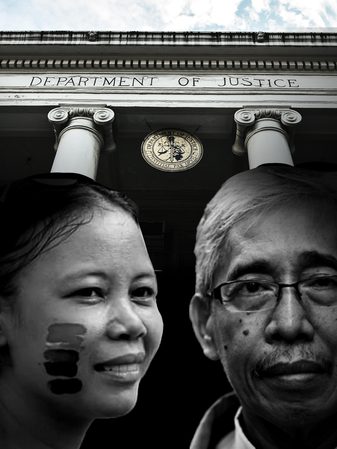


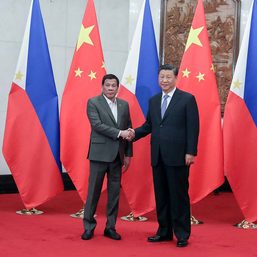

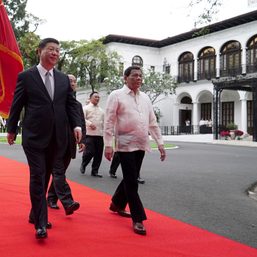
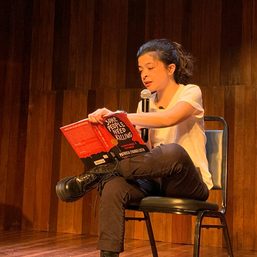
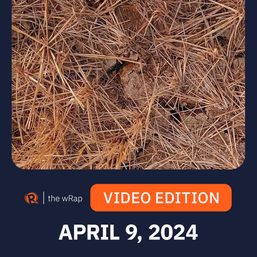
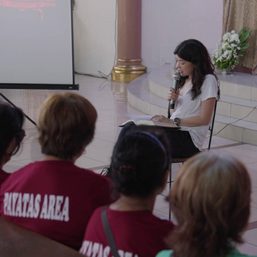

There are no comments yet. Add your comment to start the conversation.